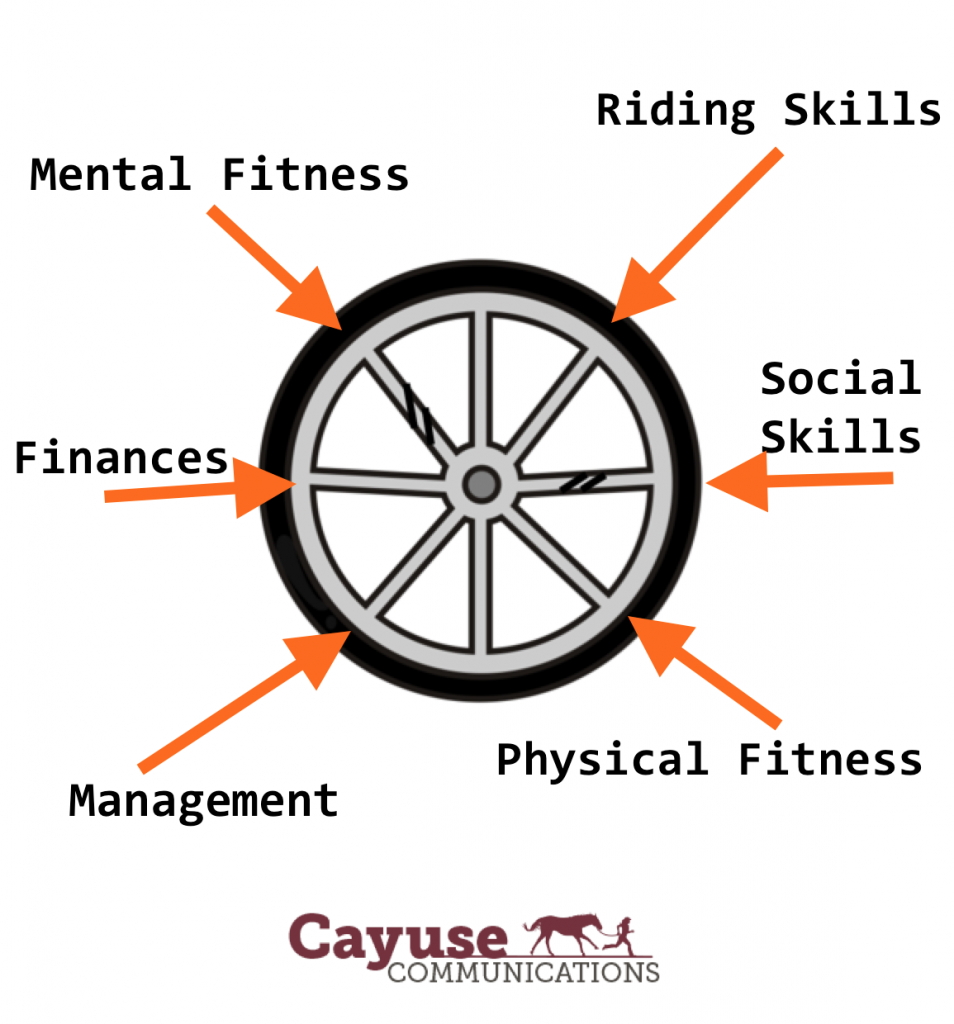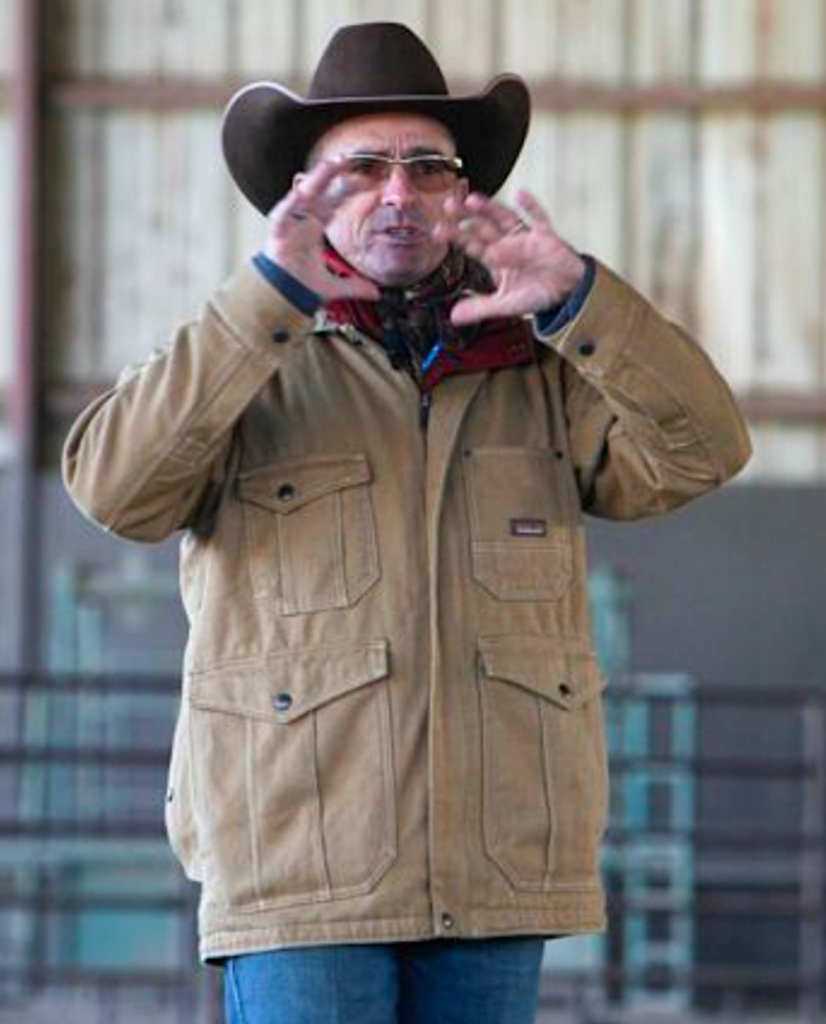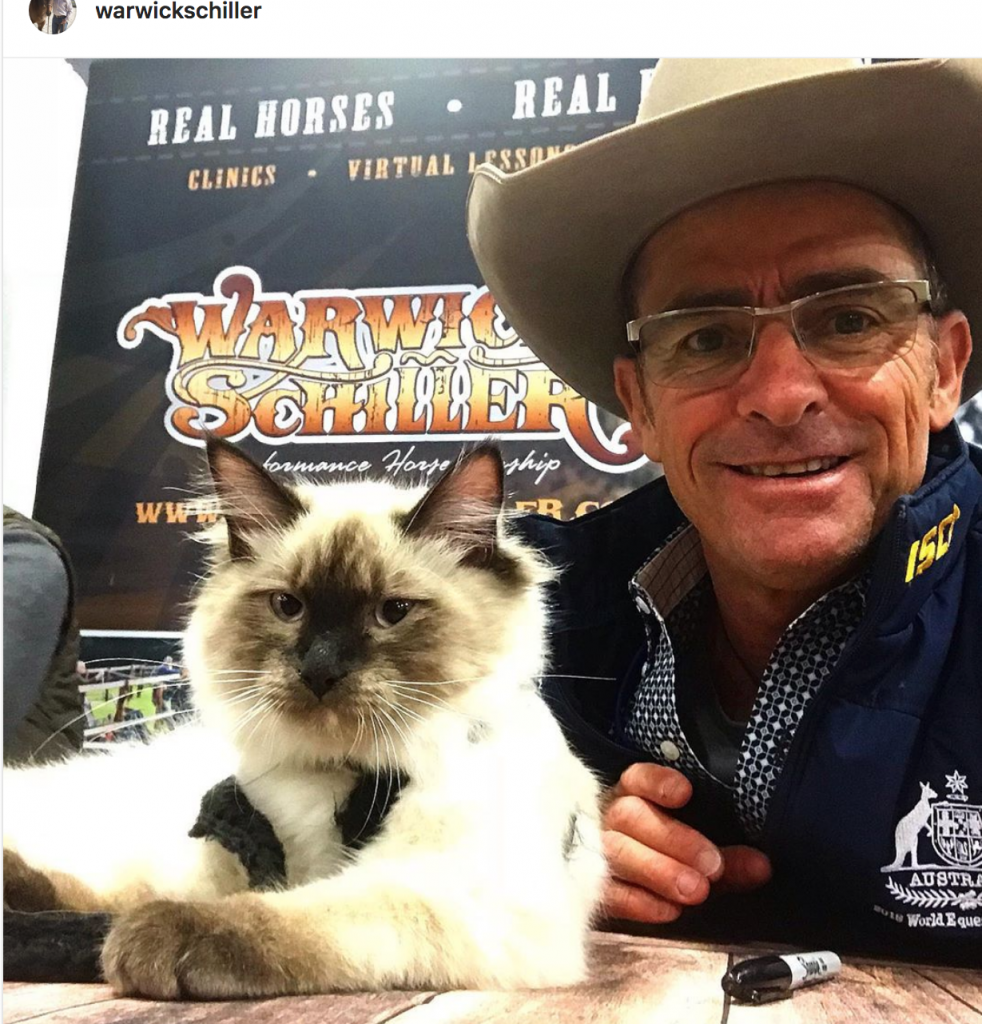We appreciated a recent On Pasture post, which used a flat tire metaphor to explain how one weak spot in our personal world can impact our entire livelihood and our life with horses. Things we’re worst at and fail to address ultimately hold us back. And yet, we still tend to ignore our weaknesses.
Consider the Cayuse Communications wagon wheel, which has these spokes:
Mental Fitness – well being, education, happiness, open-mindedness, etc.
Physical Fitness – range of motion, strength, balance, cross training, aerobic fitness, etc.
Social Skills – healthy communication and interaction with friends, peers, networks
Management – horse care, emergency response, 1st aid, pasture maintenance, best practices education, trailer skills, etc. Read more here
Finances – savings for emergencies, long-term planning & stability, resources, equipment, etc. Read more about ownership.
Riding & Ground Work – fitness, training, education, horse-human connection, awareness

Is there a crack or weakness in any of these spokes for you? Do you tend to see a crack and ignore it? Or, as my friend, TJ Zark, likes to say: “Do you recognize balance every time you swing past it?”
Fixing a weak or broken spoke is a process. It may entail:
— Realizing the problem
— Searching for answers
— Finding help
— Implementing a change
— Sticking with an improved routine
— Reviewing and assessing your wheel’s strengths and weaknesses regularly.
2017 BHPS presenter and international clinician Warwick Schiller knows something about this process. He’s been working on himself (and therefore his horsemanship) for years. We chatted about how he connects his new meditation practice with improved horsemanship.

Schiller presents at the Best Horse Practices Summit
First of all, Schiller didn’t jump into lengthy meditation stints cold turkey. He used a phone app and started with one minute a day. Awareness is like a muscle, we agreed by phone the other day.
“It’s like going to the gym. If I were to go there on Day One and work out really hard for an hour, I’d never go there again. Now, I can meditate for forty-five minutes at a stretch, but I never would have been able to do that a year ago.”
How does meditation and improved awareness affect his horsework?
“You have to be present when you’re working with a horse. Before, I might be trying to take a picture of what was happening or I might have been unwilling to wait and give the horse the time it needed. I wasn’t present enough,” said Schiller. “The horses felt it and it would trigger their sympathetic nervous system. Once that happens, you’ve lost the connection. I’ve found horse work helps with meditation and meditation helps with horse work.”
When we pay attention to all our spokes, our whole world can open up with insight, opportunity, and improvements.
Schiller recalls visiting with an old cowboy who told him about a visit from Tom Dorrance:
Tom came into his barn where lived a black and white barn cat. The cat was feral and had never connected with humans. Fifteen minutes into Tom’s visit, the cat was in the barn aisle. After another 15 minutes, the cat was at Tom’s shins. Later, the cat was following Tom everywhere.

Schiller and his new cat friend
When Tom left, the cat went back to being feral.
Coincidently, Schiller had his own cat encounter recently.
“At the Washington State Horse Expo, a woman passed by who was walking a cat on a leash. The cat jumped into my lap and visited for 30 minutes,” said Schiller with a laugh.
Strange and wonderful things can happen when you get yourself to an optimal place and all your spokes are in good order.
Visit the BHPS Video Lab to watch Schiller.
Great insights, Warwick Schiller. Being fully present is one of the most important things we can do when working with horses. In fact, horses have made me want to take up meditation. For years, I watched them living moment to moment, which is the only way they know how to live. I realized I wanted to be more like them, so, like you, I started with one minute a day (and (Dan Harris’ book Meditation for Fidgety Skeptics). Already, meditation is making me a better horsewoman, and being around horses is making me a better meditator.